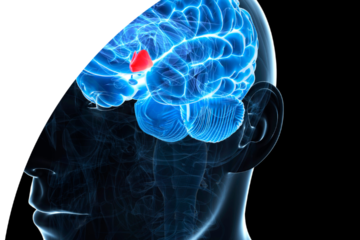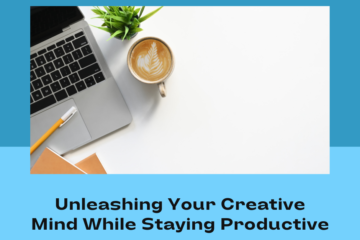
Introduction:
“Have you ever wondered what separates those who merely get by in life from those who thrive, radiating energy and vitality at every turn? Is it sheer luck, genetics, or is there a strategic approach to achieving peak physical health? As we delve into the world of wellness, let’s uncover the strategies and choices that can guide you in optimizing your physical health, setting the foundation for not just surviving, but truly thriving in life.”
Personal Story:
Just two years ago, I went to our favorite cozy café with a close friend named Ella. While I told Ella about my recent climbing trip, I noticed that her eyes were wandering and her shoulders were sagging. She took a sip of her coffee, looked up at me, and with a sigh said, “I wish I had the energy you do. I feel like I’m running on empty these days.”
Ella had always been a busy person, but her life changed after she got a desk job. The snooze button became a fight every morning. Many nights were spent on the couch, too tired to do anything but watch TV and eat food. She felt like she had lost touch with the person she used to be.
She knew she was having trouble, so she chose to make a change. Ella started out by making small changes, like taking a 10-minute walk during her lunch break, switching from soda to water, and setting aside Sundays to prepare healthy meals. Over time, these habits got worse and worse. Ella signed up for a dance class near her home. She had loved dancing in college. She began to learn about nutrition and focused on foods that gave her energy.
A year later, the change was amazing. Ella completed her first 10k. She danced twice a week and even led a few office workouts. But more than what she did, what really changed her was the sparkle in her eyes and her new zest for life.
When I asked her about her path, she smiled and said, “It wasn’t about big changes. It was about paying attention to my body, figuring out what it really needed, and making small decisions every day. Every step I took and every healthy meal I ate was a letter of love to myself.”
Ella’s story of going from being tired to thriving shows how improving your physical health can change your life. It was a powerful lesson that sometimes the most important changes come from small, steady steps.
Quiz: How Optimized Is Your Physical Health?

1. Morning Energy Levels
A) I wake up feeling refreshed most days.
B) It takes me a while to get going, but I manage.
C) Snooze button is my best friend – I always feel tired.
2. Daily Activity
A) I engage in at least 30 minutes of physical activity.
B) I occasionally take short walks or stretches.
C) Most of my day is sedentary.
3. Hydration Habits
A) I drink at least 8 glasses (or 2 liters) of water daily.
B) I drink water, but not consistently throughout the day.
C) I often forget to hydrate or choose other beverages.
4. Eating Patterns
A) I mostly eat balanced meals with fruits, vegetables, and lean proteins.
B) My meals are a mix of healthy choices and convenience foods.
C) I often opt for fast food, processed snacks, or skip meals.
5. Stress Management
A) I have effective routines to manage and reduce stress.
B) I occasionally indulge in relaxation activities.
C) I often feel overwhelmed and don’t have stress-relief practices.
6. Sleep Patterns
A) I consistently get 7-9 hours of restful sleep.
B) My sleep varies; some nights are better than others.
C) I often struggle to get quality sleep or sleep less than 6 hours.
Results:
Mostly As: Fantastic! You’re on the right track to optimizing your physical health. Continue these habits and consider exploring new ways to enhance your wellbeing.
Mostly Bs: You’ve made some good choices, but there’s room for improvement. Focus on consistency and introducing more health-boosting habits.
Mostly Cs: It’s time for some changes. Consider which areas of your physical health need the most attention and start with small, manageable steps.
This quiz offers a snapshot of your physical health habits. Remember, everyone’s journey is unique. It’s never too late to start or refine your health journey!
Physical health is more important than ever in a world where people spend more and more time in front of screens and eat fast food. Physical health at its best not only lengthens life but also makes it better by giving you more energy, a better mood, and better mental skills. But how do you go from knowing that physical health is important to really living it? Here is a map to help you get there.
1. Understand the Pillars of Physical Health
a. Food gives our bodies energy. Eating a balanced diet full of fruits, veggies, whole grains, and lean proteins can help your metabolism, organ function, and general health.
b. Exercise: Regular physical exercise is important for the health of your heart, muscles, and joints. It also helps you keep your weight down and boosts hormones, which can make you feel better.
c. Sleep: When you sleep, your body heals itself. Getting enough rest not only keeps your mind sharp, but it also helps control hormones, heal muscles, and boost your immune system.
d. Staying hydrated: Water helps our bodies do important things like digest food, move blood around, and keep the right temperature.
2. Embrace a Balanced Diet
Focus on whole foods. Processed foods often have added ingredients and a lot of salt, sugar, and fat that are bad for you. Whole foods, such as fruits, veggies, grains, and lean meats, give you all the nutrients you need without any extras you don’t need.
Watch the size of your portions. Eating carefully and being aware of the size of your portions can help you avoid overeating and maintain a healthy weight.
Stay hydrated. Drinking water throughout the day keeps your cells working and helps your body absorb food.
3. Make exercise part of your routine

Find things you like to do: It shouldn’t feel like a chore to work out. Choose things to do that make you feel good, like swimming, hiking, yoga, or dancing.
Mix it up! To get a well-rounded fitness plan, do a mix of cardio, strength training, and flexibility routines.
Stay consistent. Aim for at least 150 minutes of moderate-intensity aerobic exercise every week, plus muscle-strengthening activities on two or more days a week.
4. Make sleep a priority
Follow a pattern. Going to bed and getting up at the same time every day, even on the weekends, helps your body’s internal clock run smoothly and improves the quality of your sleep.
a. Make your bedroom a good place to sleep by making sure it is dark, quiet, and cool. If you need to, you could use earplugs, an eye mask, or a white noise machine.
b. Don’t spend too much time in front of a screen before bed. The blue light from phones, tablets, and computers can stop the production of melatonin, a hormone that helps you sleep. Try to stay away from screens for at least an hour before you go to bed.
c. Watch what you eat. Large meals, caffeine, and drinks right before bed can keep you from sleeping.
5. Manage Stress
a. Practice mindfulness. Methods like meditation, deep breathing exercises, and writing in a journal can help you deal with worry and its effects on your health.
b. Take breaks: During the day, take small breaks to stretch, walk, or just relax.
c. Get help. Talking to someone you trust, like a friend, family member, or therapist, can be a powerful way to deal with and lower stress.
6. Check-ups and tests on a regular basis

a. Go to the doctor: Regular checkups can help you find health problems early and make sure you’re on the right track to reach your health goals.
b. Get your shots on time. They protect you from many diseases that can hurt your health.
c. Get checked: Your doctor may suggest certain tests based on your age, gender, and family background. These can be very important for finding problems early and stopping them.
7. Avoid Harmful Habits
a. Don’t use tobacco. Smoking and using tobacco are major risk factors for many diseases, such as heart disease and cancer.
b. Don’t drink too much booze. If you do drink, do it in moderation. Too much drinking can cause a number of health problems, such as liver disease.
c. Be careful with medicines. Always do what your doctor tells you to do, and never try to treat yourself or abuse prescription drugs.
In the end, improving your physical health is an ongoing process that requires awareness, dedication, and persistence. You can live a more balanced, rewarding, and healthy life if you know about and take care of every part of your physical health.

Conclusion:
“Your journey to optimal physical health begins with a single, mindful decision. From the meals you eat to the way you manage stress, every choice has a profound impact on your well-being. Don’t delay—embrace a healthier you starting today! And if you found this guide valuable, please share it with friends and family. Let’s collectively pave the way for a healthier, happier world. Act now, for the best version of you awaits!“



0 Comments